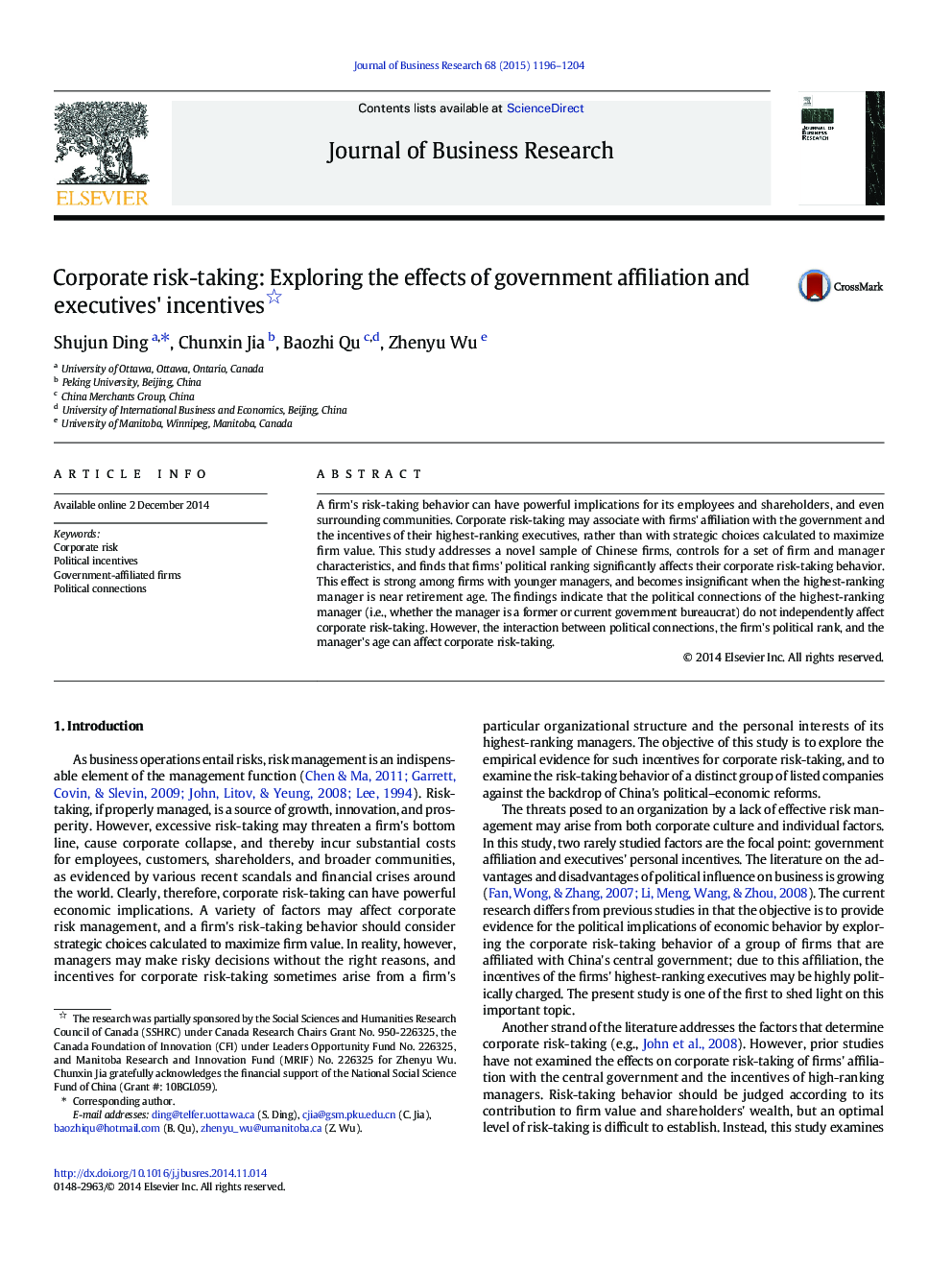| Article ID | Journal | Published Year | Pages | File Type |
|---|---|---|---|---|
| 1017332 | Journal of Business Research | 2015 | 9 Pages |
A firm's risk-taking behavior can have powerful implications for its employees and shareholders, and even surrounding communities. Corporate risk-taking may associate with firms' affiliation with the government and the incentives of their highest-ranking executives, rather than with strategic choices calculated to maximize firm value. This study addresses a novel sample of Chinese firms, controls for a set of firm and manager characteristics, and finds that firms' political ranking significantly affects their corporate risk-taking behavior. This effect is strong among firms with younger managers, and becomes insignificant when the highest-ranking manager is near retirement age. The findings indicate that the political connections of the highest-ranking manager (i.e., whether the manager is a former or current government bureaucrat) do not independently affect corporate risk-taking. However, the interaction between political connections, the firm's political rank, and the manager's age can affect corporate risk-taking.
